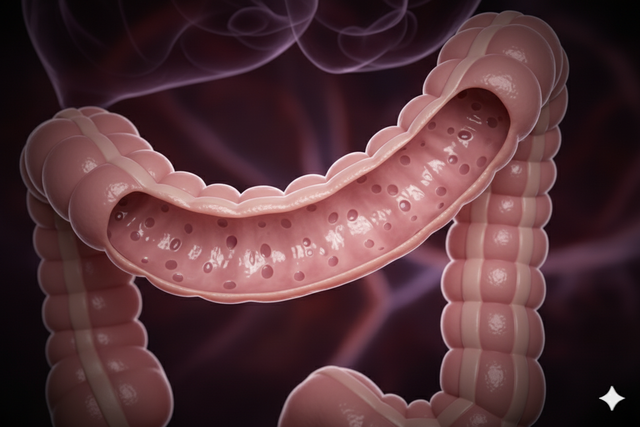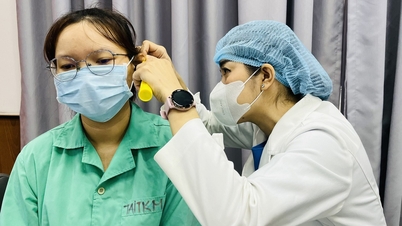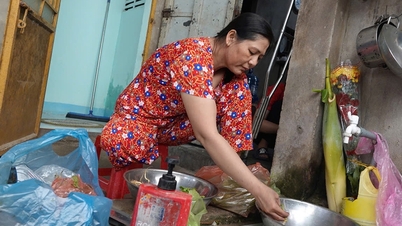5-10% of colon cancer cases have genetic factors
Dr. Ung Van Viet, Deputy Head of the Department of Digestive Surgery, University of Medicine and Pharmacy Hospital, Ho Chi Minh City, said that about 5-10% of colon cancer cases have genetic factors.
According to Dr. Chu Thi Dung, University of Medicine and Pharmacy Hospital, Ho Chi Minh City - Campus 3, the two most common syndromes of colon cancer are Lynch syndrome (hereditary non-polyposis colon cancer) and familial adenomatous polyposis (FAP). These are genetic disorders that increase the risk of colon cancer in the next generation, even almost certain if not treated promptly.

About 5-10% of colon cancer cases have genetic factors.
Illustration: AI
However, not only genetic factors, living environment and living habits also play a very important role. When the whole family has the habit of eating a lot of red meat, few green vegetables, smoking, drinking alcohol, and little exercise, the risk of colon cancer increases. Therefore, when there are 2 or more direct relatives in the family with the disease, other members need to pay special attention to early screening.
Signs of colon cancer
Dr. Chu Thi Dung said that early stage colon cancer often has no typical symptoms, causing many people to miss the golden time to detect the disease. Some warning signs include: prolonged changes in bowel habits, unusual diarrhea or constipation, small, flat stools; bloody or black stools; dull abdominal pain, persistent bloating; unexplained weight loss; unexplained iron deficiency anemia. When these symptoms appear, people should see a gastroenterologist for an accurate diagnosis.
How to prevent and screen for colon cancer?
According to the recommendations of the World Health Organization (WHO), colon cancer can be effectively prevented by adjusting lifestyle such as eating more green vegetables, fruits, whole grains; limiting red meat and processed foods; maintaining a reasonable weight; exercising regularly; avoiding alcohol and tobacco. These are simple measures but have been proven to reduce the risk of disease.

Eating lots of green vegetables, fruits, and whole grains helps prevent colon cancer.
Photo: AI
Dr. Ung Van Viet said that there are now genetic tests that can accurately determine whether your family's colon cancer is hereditary or not. From there, the doctor will advise and develop a prevention, screening and treatment plan appropriate for each member, helping to reduce the risk of disease or detect it early to increase treatment effectiveness.
In addition, regular screening plays a decisive role. For normal people, screening is recommended to start at age 45. In particular, those with a family history of colon cancer should start earlier, usually from age 40 or 10 years earlier than the age of their relatives' diagnosis. Colonoscopy is still the gold standard for both early detection and the ability to remove polyps during the procedure. In addition, fecal occult blood or fecal DNA tests are also used depending on the case.
Dr. Chu Thi Dung said that colon cancer has genetic factors, but not everyone who carries the risk gene will get the disease. It is important that people with a family history need to be more proactive in screening and maintaining a healthy lifestyle. Early detection of the disease not only helps in effective treatment and reduces costs, but also gives the patient a higher chance of survival. Therefore, everyone should consider colon cancer screening as part of regular health care, especially when there are many members in the family with the disease.
Source: https://thanhnien.vn/ung-thu-dai-trang-co-di-truyen-phong-ngua-the-nao-185251014214020954.htm


































![[Photo] Ready for the 2025 Fall Fair](https://vphoto.vietnam.vn/thumb/1200x675/vietnam/resource/IMAGE/2025/10/14/1760456672454_ndo_br_chi-9796-jpg.webp)













































































Comment (0)